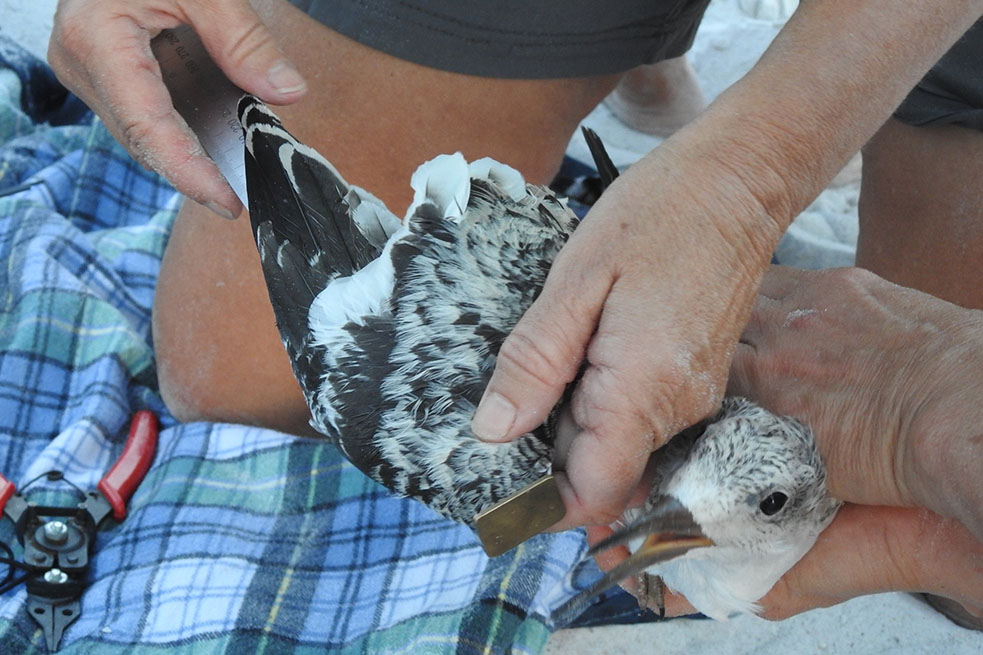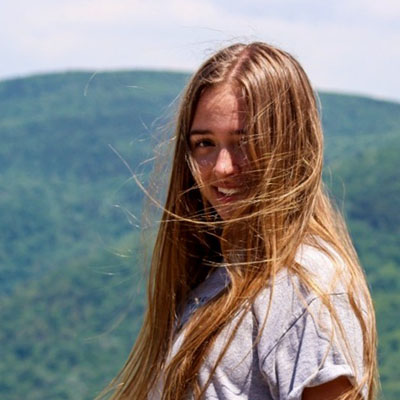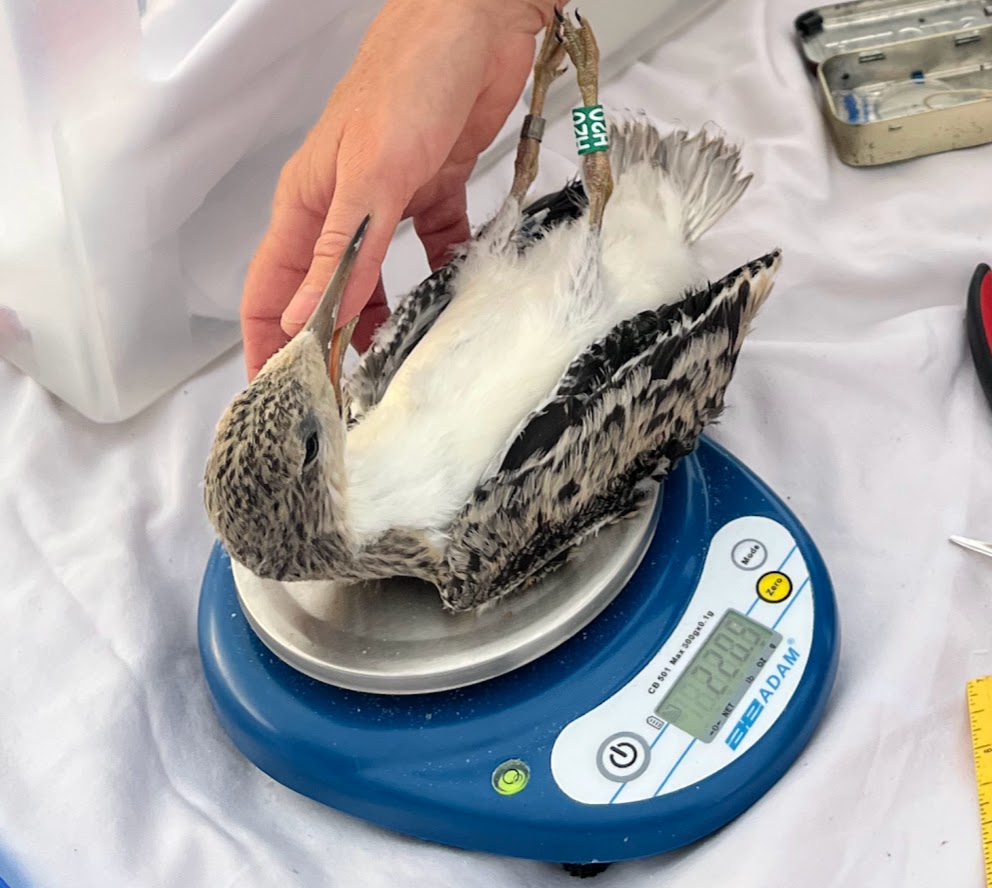
Researchers measure the wing length of a black skimmer chick.
It was the summer of 2022, and Carly Naundorff, who had graduated from Eckerd College a few weeks earlier, was living and working in Tennessee’s Cherokee National Forest as an avian field technician for the U.S. Forest Service and the University of Tennessee.
She also was putting together a research paper in collaboration with Eckerd Professor of Environmental Science and Biology Beth Forys, Ph.D., the Richard R. Hallin Professor in Natural Sciences.
In the parking lot of a fast-food restaurant.
Carly lived at a ranger’s station, and there was no reliable Wi-Fi or cellphone service in the park, so she often drove to the nearest town—Tellico Plains (pop. 762)—pulled her Honda HR-V into a Hardee’s parking lot, and popped open her laptop. “I sat out there and worked in my car, or sometimes at the park’s visitors-center lot, which also had free Wi-Fi,” she explains. “I kind of loved it. It was very peaceful and I didn’t mind working in my car. After being out in the field all day, it didn’t really feel like work.”
But it certainly paid off. Carly, who is from Dingmans Ferry, Pennsylvania, had graduated from Eckerd with a bachelor’s degree in biology and environmental studies. The research paper she and Forys wrote “An Evaluation of Morphological Methods for Sex Determination of Black Skimmers (Rynchops niger) in the Pre-Fledgling Stage,” was published recently in the peer-reviewed journal Waterbirds.

Carly Naundorff ’22 (from LinkedIn)

Researchers weigh one of the black skimmer chicks (“H2O”) found on Florida’s Gulf Coast.
And this month, she will begin a fully funded master’s degree program in wildlife ecology at Texas State University in San Marcos, Texas. She’ll be studying another taxon—bats.
The research paper, the second that Carly and Forys have collaborated on, is a study of black skimmers, a seabird found along the Gulf Coast of Florida, the California coast and coastal South America, among other areas. Because of loss of habitat, increased predation, climate change and sea level rise, the bird is listed as threatened by the State of Florida. Carly and Forys discovered that a study of black skimmers in California could not be used to accurately study the birds living in Florida.
“It appears our Florida chicks grow slower than those in the California study and do not asymptote [catch up to the natural growth curve] until after they are flight capable,” the authors wrote. “As black skimmer populations decline, further research is needed to determine the most effective chick sexing method as knowledge of survival rates of pre-fledglings by sex will be critical for evaluating management efforts.”
In addition to having two research papers published, Carly received the 24th Annual Greater Everglades Student Memorial Scholarship, administered by the Florida Chapter of The Wildlife Society. She also was a recipient of the Fulbright Canada-Mitacs Globalink Research Internship and the U.S. Department of State’s Benjamin A. Gilman International Scholarship.
During her four years at Eckerd, she traveled to the Galapagos Islands, Switzerland and Puerto Rico to study ecology, vegetation, permaculture and sustainability.
“Locally,” Forys adds, “Carly’s volunteer and work projects have included telecounseling other students, biology-lab teaching assistance, organic gardening and compost system management, beach cleanups, and building her own website on the importance of protecting biodiversity.
“An undergraduate having two published papers is pretty unusual,” says Forys, who spoke by phone with Carly frequently while she was working in the parking lot.
“This really shows the promise Carly has at the research level.”
That research and other work she did at Eckerd, Carly says, helped pave the way for graduate school. “I told myself that unless I got funding in some way, I would have a difficult time paying for it. But Texas State hired me as an instructional assistant, so I’ll be teaching and earning money while I’m in grad school.
“I’m super excited,” she adds. “Eckerd College is an amazing place, and I’m also grateful to Dr. Forys. She was so supportive.”
On a trip back to Pennsylvania last October, Carly took a detour to revisit that Hardee’s parking lot in Tellico Plains. “I went out of my way to stop by the town,” she says, “and to help out with bird banding.”












